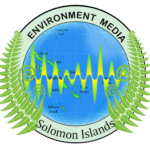A new three-year partnership program was launched by Australian High Commissioner Rod Hilton to support and enhance the Baru Conservation Alliance (BCA) and its tribal model initiatives in the East Kwaio Mountain region of Malaita province in the Solomon Islands.
The program aims to strengthen environmental conservation, cultural preservation, and community development across four tribal areas in East Kwaio.
The launch was attended by 30 tribal members, chiefs, cultural students, and leaders from the conservation areas, along with representatives from local organizations, including MMGB and Solomon Islands National University (SINU), as well as Australian stakeholders.
Chief Esau praised the Australian government’s sustained support, particularly highlighting the contributions of Australian research institutions such as James Cook University and the Australian National Museum, whose scientific studies have identified several endemic species of birds, snails, flying foxes, and spiders in the region.
The new program will focus on reforestation, cultural education, health, and sanitation, while also advancing scientific research and sustainable eco-development. The goal is to preserve forest carbon and biodiversity, ensuring the ecological and economic well-being of local communities.
Through their technical support, then scientific research added value to the conservation programs. As a result, four endemic bird species, two endemic snails’ species, two endemic flying fox species, and two endemic spider species are found and documented. Esau thanked everyone for making the program a successful one. Both Baru team leaders and stakeholders.
In his speech, the Australian High Commissioner, Mr. Rod Hilton, valued the great triumphs that Baru Conservation Alliance had attained in the past years. He highlights the successes of the past four years of working with BCA as a success story in reforestation, cultural school, sanitation, health, scientific survey data, mapping, and simple flour making.
On the same note, he is committed to supporting this program, thus launching this new three-year partnership program support for BCA to build on what was achieved and strengthen all the BCA programs.
This program will help to keep forest carbon and biocredit and to keep the eco-systems sustainably for the community’s needs and benefits. The other benefits are to strengthen the health, education, water and sanitation, cultural and tradition knowledge for the future generation. Australia really honors being partners with people of East Kwaio mountainous regions.
During the launching program, the Baru team also displayed some of the activities that Baru was involved in, like cultural schools, flour making, mapping, reforestation, health, and scientific survey data. The Australian High Commissioner Team had a good time to really see what the asocial activities that happened on the ground were.
Source: Baro Conservation Alliance

